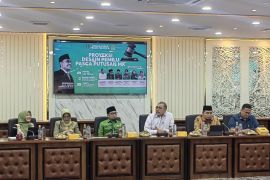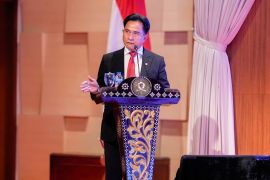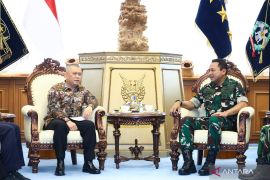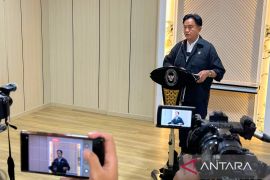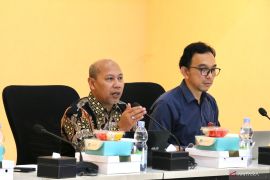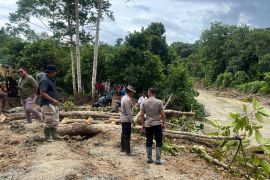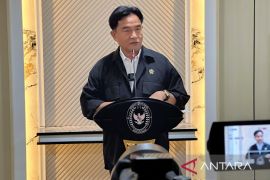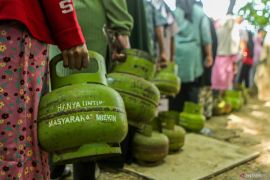"Nearly 40-50 Indonesians die every day due to drug consumption," the President said.Yogyakarta (ANTARA News) - President Joko Widodo has stated that Indonesia is in a state of emergency over drugs, so it has refused to pardon drug convicts on death-row.
"Nearly 40-50 Indonesians die every day due to drug consumption," the President said during a general lecture at Gadjah Mada University here on Tuesday.
Statistics show that Indonesia has an estimated 4.5 million people affected by drug consumption, of whom 1.2 million cannot be rehabilitated due to their poor health conditions, he added.
The President revealed that he received 64 applications for clemency from drug convicts on death-row.
"I do not pardon any of them," he stressed, adding that his hard stance against death-row drug convicts is intended to serve as a shock therapy.
The Attorney Generals Office recently said 136 death-row convicts who were on the waiting list for execution were still making legal efforts to free themselves.
"Of the 136 death-row convicts, 64 are involved in drugs-related cases and 72 in non-drug cases, including two terror convicts," Head of the Legal Information Center of the Attorney Generals Office Tony T Spontana pointed out last Thursday.
Six death-row convicts are still at large, he said, adding that a total of 27 death-row convicts have been executed since 2000.
"This year, five death-row convicts will be executed," he remarked.
In 2013, the AGO executed several convicts, including Suryadi who belonged to Palembang and was sentenced to death for killing all the members of a family in the Pupuk Sriwijaya compound in 1991.
Attorney General HM Prasetyo said in Semarang, Central Java, on Sunday (Dec 7) that due to security reasons, the Attorney Generals Office will not reveal the site where five death-row drug convicts will be executed.
"To avoid security issues, the location will be kept secret," he added.
Prasetyo noted that before their execution, the Attorney Generals Office will take several aspects into consideration, including discussing the details of firing squad with the national police, about the rights of the death-row convicts, and preparing the location of their execution.(*)
Editor: Heru Purwanto
Copyright © ANTARA 2014


